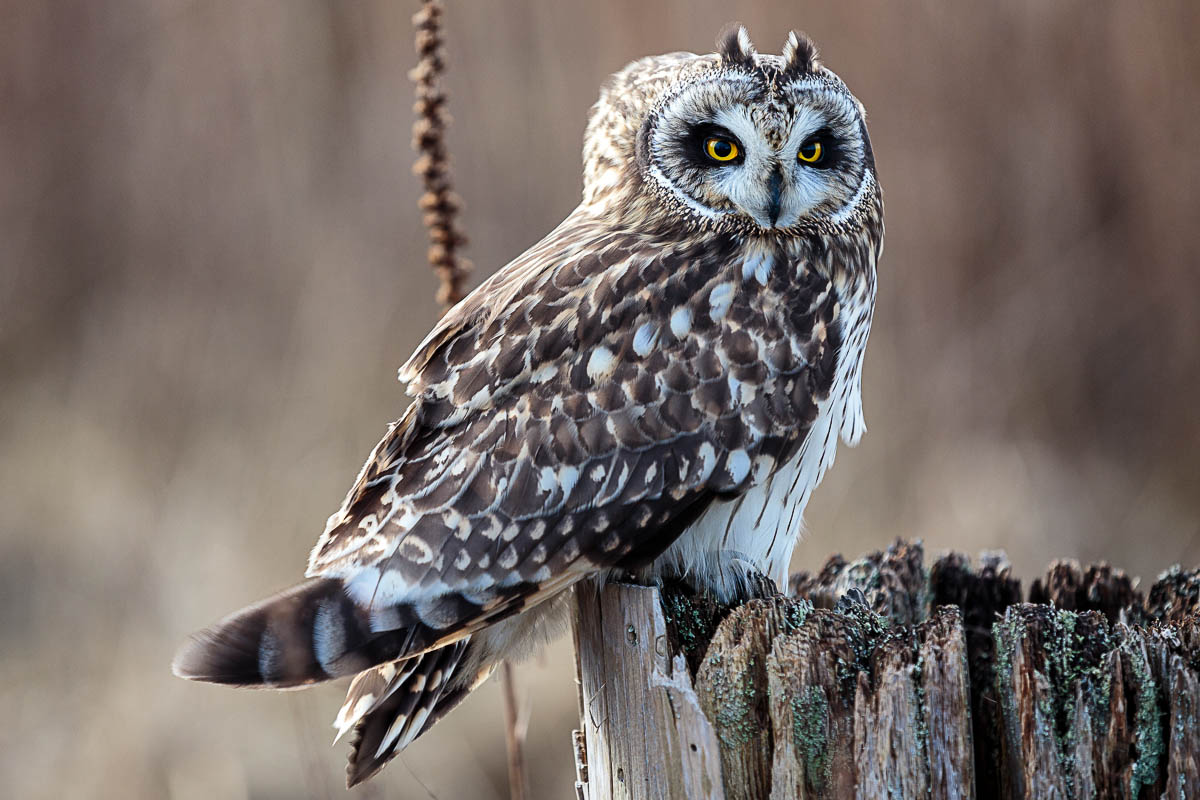
The short-eared owl
Durham is a city surrounded by beautiful countryside and natural habitats, and one indicator of this is the variety of bird life we have in our county. But how many of us actually take time off our laptop screens to experience the environment around us? With the RSPB’s Big Garden Birdwatch coming up, Joanna Robertson speaks to Susan Clark, a first time amateur birdwatcher, and explores what opportunities are available for birdwatching in Durham.
What sparked your interest in birdwatching?
Really, a great desire to see owls more than anything else, that was caused by driving along the road on dusky nights, seeing empty trees and wishing for owls.
Why owls particularly?
I think because they are so rarely seen, so it makes it more special. And they look so cute!
Did you have any prior experience of birdwatching?
None at all, except looking out in my back garden, I have birdfeeders but I have never seen an owl in my back garden!
So what was your first proper experience of birdwatching?
A family friend, who is a keen birdwatcher, heard of my interest in owls and offered to take me to look for some.
We went to Papercourt Water Meadows near the Wey navigation system, just outside Ripley, in Surrey. The Wey navigation system is the one navigation system owned and managed by the National Trust, but we were mostly in fields to either side of the canal and river. There were around twenty birdwatchers around the area, and once a bird was spotted different groups were giving a running commentary on who could see it and where it was.
And what did you see?
We had to go in January if we had any chance to spot the short eared owl – it’s a winter visitor that comes from northern Scandinavia for the winter. My friend had seen information on the internet which suggested other people had seen it in this location. Because it was not yet dusk, we wandered over to the other side of the canal where there were already two committed birdwatchers with their scopes already trained on an area of farmland some distance away.
They were hoping to see the little owl! I couldn’t see it on the binoculars but when I looked through the scope I could see it puffed out sitting on a low branch, just like an illustration of an owl. It was very difficult to spot – the dusk gave poor light but it was also highly camouflaged.
If I hadn’t been with experienced birdwatchers I wouldn’t have seen it!
How would you rate your first experience of bird watching?
Beforehand, I was a bit worried about the etiquette of bird watching – what I should wear, should I keep quiet… but they were very friendly!
I didn’t have any proper experience of bird watching but my friend brought along a book that I could look at and compare the birds that we saw. I would definitely recommend going along with someone who is a birdwatcher as they can advise you on what to wear (I would wrap up warmly!) and how long you’ll have to wait – we waited about half an hour before we saw the short eared owl. I was beginning to lose hope but they were eternally optimistic because it’s a fairly rare bird, and eventually we saw one! Go with someone who has proper binoculars or a scope too as you get a much better view!
Do you think you’ll go again?
Maybe in the summer – standing around in the cold as the light was fading meant my feet were freezing and wet – I should have worn wellies! Plus, there’s no guarantee of how long you’ll have to wait or even if you’ll see anything at all. I would love to see tawny and barn owls, as well as another crepuscular (birds that appear at dawn or dusk), the nightjar, but I think in the summer it would be a distinctly more pleasurable experience!
For people like my friend though, it’s a really relaxing experience – he’s in meetings all week and says it’s just a treat to be outside, in beautiful countryside on his own, just a space to focus in a quiet environment. Bird watching can be rewarding too: he set himself a target of seeing 150 different species in 2015 and by the 4th January had already seen sixty!
If you’ve been inspired to spot the beautiful short eared owl, it often visits the North East during the winter. There are lots of opportunities for exploring bird watching at this time of year: the RSPB is running its annual ‘Big Garden Birdwatch’ on the weekend of 24th – 25th January in which anyone can register to spot birds from their garden (or, don’t worry students – any nearby green space!) for an hour. Register online here: www.rspb.org.uk/birdwatch/
For those interested in learning more about birds, the RSPB is running a series of talks by renowned ornithologist Keith Bowey, focussing on winter birds of the region and their habitats, including field classes to different locations. For more information, check out the RSPB Durham local page:
